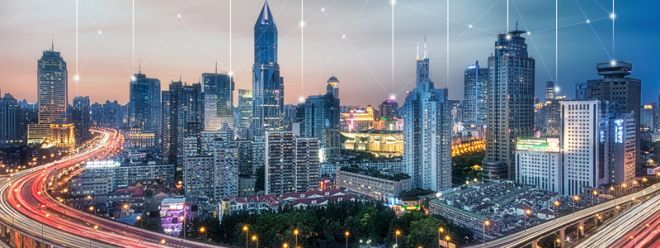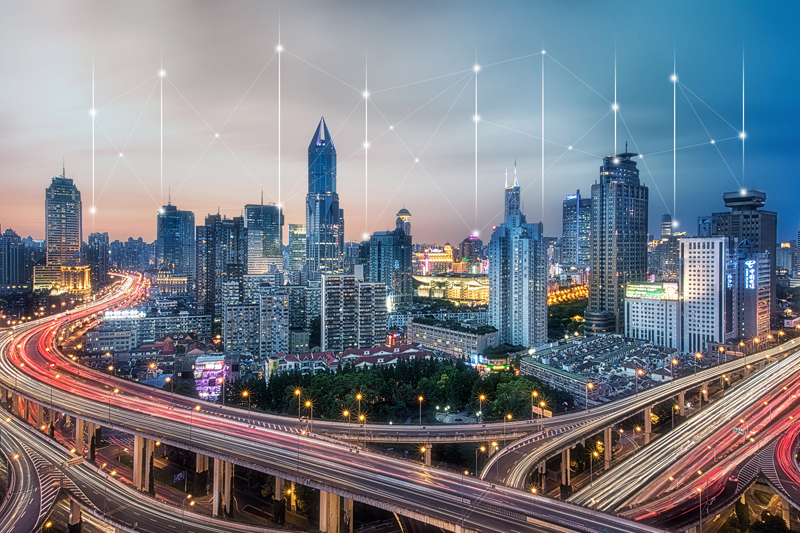Smart Commercial Buildings: Top 10 Technologies to Watch

Smart Commercial Buildings: Top 10 Technologies to Watch

In recent years, the rapid advancement of digital technology has had a significant impact on various industries, and commercial real estate is no exception. There has been a marked shift in the way buildings are designed, built, managed and used. The concept of "smart buildings" is at the forefront of this evolution.
In the context of commercial real estate, a smart building is the use of interconnected technologies, systems and processes to automatically control and manage building operations. This includes heating, ventilation, air conditioning (HVAC), lighting, security, and other systems. The goal is to create an environment that is not only comfortable and safe for its occupants, but also efficient and sustainable.
Looking ahead to the next few years, the trend towards smart buildings will further develop. Advanced technology opens up new possibilities and efficiencies that push the imagination of commercial real estate. Let’s explore the key technologies that will define the smart building landscape in the near future.
1. Building Management System (BMS)
A building management system (BMS) acts as the central nervous system of a smart building, coordinating the various technical systems and services within the building. These networks of microprocessor-based intelligent controllers monitor critical systems such as air conditioning, ventilation, lighting and hydraulics. By linking the functions of individual building equipment, BMS systems ensure that they function as a complete integrated system.
As technology has advanced, BMS systems have grown to become more sophisticated and now play a vital role in every major building or facility. It can be directly integrated with other building services such as security, access control, CCTV, fire protection, elevators and other life and safety systems. This enables a more comprehensive and holistic approach to building management.
Modern BMS systems are based on open communication protocols, such as BACnet, and are network-enabled, allowing integration with systems from multiple vendors and remote access from anywhere in the world. This flexibility and connectivity makes BMS systems essential for optimizing a building's operations, ensuring energy efficiency, and creating a comfortable environment for occupants.
2. Energy management system (EMS)
An energy management system (EMS) takes the concept of energy efficiency a step further. These systems monitor the energy consumption of all systems in a building and analyze this data to identify inefficiencies and areas for improvement. EMS can provide building managers with detailed reports and real-time alerts, simplify the management of energy usage, and help reduce operating costs.
3. Internet of Things (IoT) devices
The Internet of Things (IoT) is an essential part of modern smart buildings. IoT devices such as sensors, actuators and smart meters collect and communicate valuable data on everything from temperature and humidity to occupancy and energy usage. This data can be used to automate and optimize various building functions, increasing comfort and efficiency.
4. Building Analysis
Building analytics act as the brains of a smart building, making sense of the vast amounts of data generated by the various systems within the building. It is closely connected with other technologies such as BMS, EMS and IoT devices and plays a vital role in optimizing building operations.
Building analytics harness the power of thousands of data points collected from different systems within a building, including parameters such as temperature, humidity, energy consumption, and occupancy. Leveraging advanced tools such as machine learning and artificial intelligence, it digs deep into this data to discover inefficiencies, predict potential problems, and suggest actionable strategies to improve performance.
5. Intelligent lighting
Smart lighting systems use sensors and automatic controls to adjust lighting levels based on various factors, including occupancy and levels of natural light. This can result in significant energy savings while improving the occupant experience and maintaining safety.
6. HVAC optimization
Advanced HVAC systems do more than just control temperature. It also monitors and regulates humidity and air quality to create a comfortable and healthy indoor environment. These systems can adapt to changing conditions in real time, reducing energy consumption and extending the life of HVAC equipment.
7. Renewable energy and energy storage
With the continuous development of sustainable buildings, renewable energy sources and energy storage systems are becoming more and more important. These systems can store excess energy generated from renewable sources for use during periods of peak demand, reducing reliance on the grid and lowering energy costs.
8. Intelligent water management system
In sustainable buildings, saving water is just as important as saving energy. Smart water management systems can monitor water usage, detect leaks in real time, and even optimize irrigation systems, resulting in significant water and cost savings while enhancing building sustainability.
9. Access control and security system
Safety is the top priority of any commercial building. Advanced security systems can use technologies such as biometrics and smart cards to manage access and protect against threats. These systems can also be integrated with other building systems to provide a more holistic approach to building safety.
10. 5G connection
Further development of 5G networks by local telecom service providers will significantly enhance IoT capabilities in smart buildings. The increased speed and reliability of 5G will facilitate more efficient real-time data transmission, enabling instant control of building systems. This will increase the effectiveness of building analytics and enable IoT devices to respond to changing conditions more quickly and accurately.
Summarize
The growth of commercial real estate relies on the continued digitization and improvement of building operations. With the seamless integration of cutting-edge technologies, the field of smart commercial buildings is bound to undergo a remarkable transformation.
These advancements go beyond creating workplaces or business centers to create adaptive environments that enhance comfort, increase productivity and support sustainability. As these technologies develop and mature, smart buildings will continue to push the boundaries of what's possible, delivering enormous benefits to building owners, operators, and occupants. The future of commercial real estate is not only smart, but brilliant.